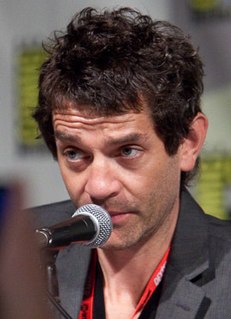A Quote by Andy Warhol
If there's ever a problem, I film it and it's no longer a problem. It's a film.
Related Quotes
The problem with cinema nowadays is that it's a math problem. People can read a film mathematically; they know when this comes or that comes; in about 30 minutes, it's going to be over and have an ending. So film has become a mathematical solution. And that is boring, because art is not mathematical.
I was at the New York Film Critics Circle Awards one year - they called me up when somebody canceled two days before the thing, and asked me to present some awards. So I went, and one of the funniest film moments I've ever had was when they introduced the New York film critics. They all stood up - motley isn't the word for that group. Everybody had some sort of vision problem, some sort of damage - I had to bury myself in my napkin.
The great thing with film is that it doesn't have an ego. It's just a film. Everybody that makes them has an ego, and the problem with awards and stuff like that is that it always affects the egos, and everyone gets stained by it in some way. And that can be fine and very innocent, but it can be horrible as well.
If we want to impact hundreds - or millions - of people, we have to do things differently. If we look at the problem as an infrastructural problem, we cannot make an impact because it requires a lot of effort. But when we convert this problem into a knowledge problem, suddenly the problem is manageable.







































